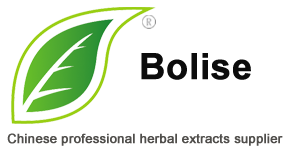Application of pullulan in vegetables and dried Fruits
Pullulan is highly effective for food preservation. Coating fresh fruits such as apples, mangoes, and citrus can effectively prevent decay and reduce nutrient loss. Taking the preservation of litchi as an example, since litchi is easily browned, rotted and deteriorated after being harvested, it is traditionally used for preservation through physical and chemical methods, such as sulfur dioxide fumigation treatment, sulfite solution treatment, chemical fungicide soaking treatment. These preservation methods are inexpensive, but the substances used are toxic and harmful to humans. However, if the lychee was preserved with pullulan coating solution, and stored for 84 hours in the summer at 35 degrees, it would extend 72 hours longer than the untreated. It can be kept 16 days longer than the untreated fruit in the 5 degree environment, and it has better preservation effect than the traditional medicine method, with quite obvious advantage.

The emulsion composed of pullulan and other hydrophobic substances is used as a fresh-keeping vegetable coating, and the preservation effect is remarkable. For example, at 25 ° C, the broad bean will blacken in 2-3 days, and is still keep green till14 days after coating with its shelf life extended by 5 times. Green asparagus shrinks at 25 ° C for 2-3 days so it cannot be sold. But the coating remains unchanged after 20 days, preserving the value of the commodity. If the raw spinach is cut into appropriate size, sprayed with 3% pullulan solution, freeze-dried, and sealed with moisture-proof bag for 5 months, the color and flavor change is small, and the vitamin is only reduced by 10%. Pullulan propionate solution (with a replacement value of 0.5) was sprayed on the cut spinach or other vegetables, lyophilized, stored in a moisture-proof bag for 5 months, and the color and shape were slightly changed, and the flavor remained fresh after cooking.
For freeze-dried greens, the coating also has effects of antioxidation, color retention and fragrance.
Fruits with high-content oil such as peanuts, walnuts, almonds, beans, dried fish and shellfish, dried whole French fries, radishes, and extremely thin sprayed pullulan film can effectively prevent oxidation.
Through study, researchers also found that pullulan itself does not have bactericidal and bacteriostatic effects, while polylings, iprodione and TBZ have good bactericidal, antiviral-infection, antiseptic and disease prevention effects. These insecticides 1000-6 (commonly effective concentration) mixes with 1% pullulan for fruit treatment, which has more obvious antiseptic effect because pullulan has good film forming properties. The insecticide is applied to the surface of the fruit, while the pullulan polysaccharide can block oxygen, delay the decomposition of the fungicide, and prolong the effect of the drug.
The effect of pullulan treatment of fruits on the shelf life was more significant. After using mixture of pullulan and insecticide, the quality of the fruit shelf life is well maintained, the water loss is reduced, and the shelf life is prolonged.
More about:
Pullulan is applied to fruit Preservation
Pullulan is applied to egg Preservation

 Asia Bio-Pharmaceutical Research Institute
Asia Bio-Pharmaceutical Research Institute Bolise Co., Ltd.
Bolise Co., Ltd.

